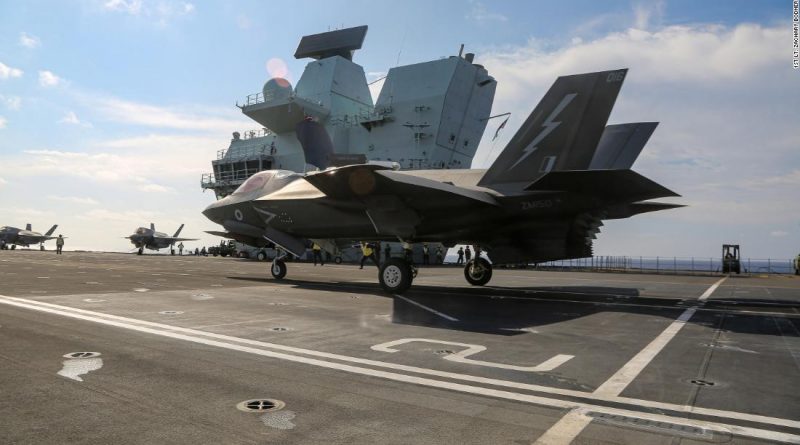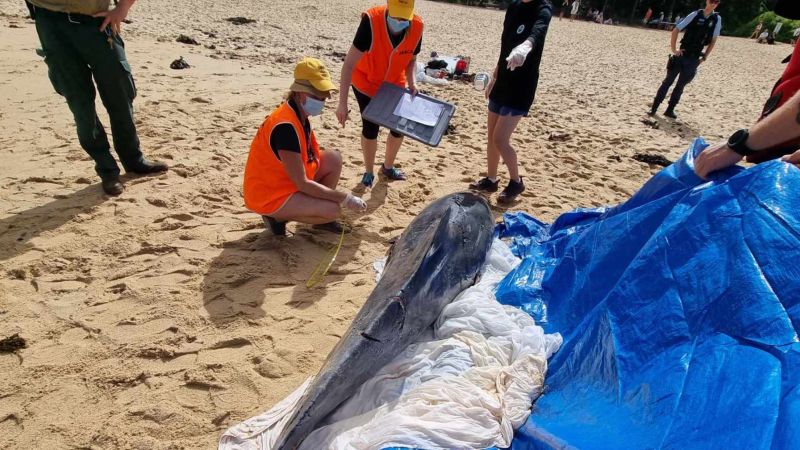Analysis: What China really means when it talks about NATO’s eastward expansion
Now, as China faces pressure from the West to condemn the Russian invasion, it’s ramping up similar rhetoric to talk about America’s footprint in Asia.
In recent days, senior Chinese Foreign Ministry officials and influential Communist Party publications have accused the US of seeking to build a NATO-like bloc in the Indo-Pacific, with one official warning of “unimaginable” consequences if it does.
At a conference in Beijing on Saturday, Chinese Vice Foreign Minister Le Yucheng said the Ukraine crisis could be used as a “mirror” to view the security situation in the Asia-Pacific region.
Building “closed and exclusive small circles or groups” in the region “is as dangerous as the NATO strategy of eastward expansion in Europe,” Le said at the event at Tsinghua University, according to a version of the speech published by China’s Foreign Ministry.
“If allowed to go on unchecked, it would bring unimaginable consequences, and ultimately push the Asia-Pacific over the edge of an abyss,” he said.
However, China’s bid to draw parallels between the US strategy in the Indo-Pacific and NATO’s “eastward expansion” in Europe closely echoes talking points from Moscow, raising serious doubts as to Beijing’s supposed neutrality.
China ‘takes advantage’ of crisis
Washington’s emphasis on the Indo-Pacific has come as China pushes a more aggressive foreign policy, doubling down on its territorial claims, while taking a harder line in response to perceived challenges.
“It’s no surprise that China would take advantage of the Ukraine crisis to lash out at the Indo-Pacific strategy,” said Li Mingjiang, an associate professor and Provost’s Chair in international relations at S. Rajaratnam School of International Studies (RSIS) at Singapore’s Nanyang Technological University.
“The intention is clear — China wants to send this message to the US and countries in the region that the Indo-Pacific strategy and American security alliances could also generate some similar security dynamics (to those) seen in Europe, involving Russia,” Li said.
That message is also being sent ahead of an “extraordinary” NATO summit on Thursday, where US President Joe Biden will meet allied leaders in Brussels to discuss the situation in Ukraine — in another showing of the striking solidarity of the bloc since the start of the crisis.
A message to America
Vice Foreign Minister Le’s warnings about the US presence in the Indo-Pacific were echoed Monday by the Chinese Ambassador to ASEAN at a news conference in Jakarta.
There, Ambassador Deng Xijun accused the US of “creating a set of ‘gang rules’ while claiming to uphold the international order” and taking the region “down an evil path,” according to Chinese state-run media The Paper.
A similar tone was adopted in an opinion piece in China’s People’s Liberation Army Daily, republished last weekend on the website of the influential Communist Party journal Qiushi, which took aim at the Indo-Pacific strategy and said the US creation of blocs was an “important reason for the continuing souring and escalation of the Ukraine issue.”
This is not the first time that China has sought to draw parallels between the US strategy in the Indo-Pacific and NATO in recent years, and the concerns get at the heart of a key stance that has drawn Russia and China closer together: their mutual distrust of the US.
But experts point out there are vast differences between NATO, a security alliance, and the US strategy in Indo-Pacific, which is not just about security, but includes a range of policies. The US, with its own long Pacific Ocean border and island state of Hawaii, also has territories in the Indo-Pacific, including Guam.
The Chinese stance, meanwhile, ignores the fact US security partnerships have come in response to China’s own rapid military modernization, according to Drew Thompson, a senior research fellow at the Lee Kuan Yew School of Public Policy at the National University of Singapore.
The US is “increasingly drawn into deeper and stronger security alliances because of (China’s military) modernization” and Beijing’s “lack of openness and transparency” toward its neighbors about its intentions, Thompson said.
But China’s leaders “don’t see a connection between other countries in the region hedging against China’s military modernization” through relationships with the US, he added.
The question of Taiwan
Another issue much closer to home may also explain why China is keen to call up its concerns over the US in the Asia-Pacific region amid the Ukraine crisis — Taiwan.
“Some people in the US have sent a wrong signal to ‘Taiwan independence’ forces. This is very dangerous. Mishandling of the Taiwan question will have a disruptive impact on the bilateral ties,” Xi told Biden, according to a Foreign Ministry readout.
This connects too with China’s larger concerns in the Indo-Pacific, said RSIS’s Li.
“If there’s a conflict over the Taiwan issue, a worst case scenario (for China) would be that China would not only have to fight a war against Taiwan, against the US, (but that) perhaps some US allies would be involved against China,” he said.




